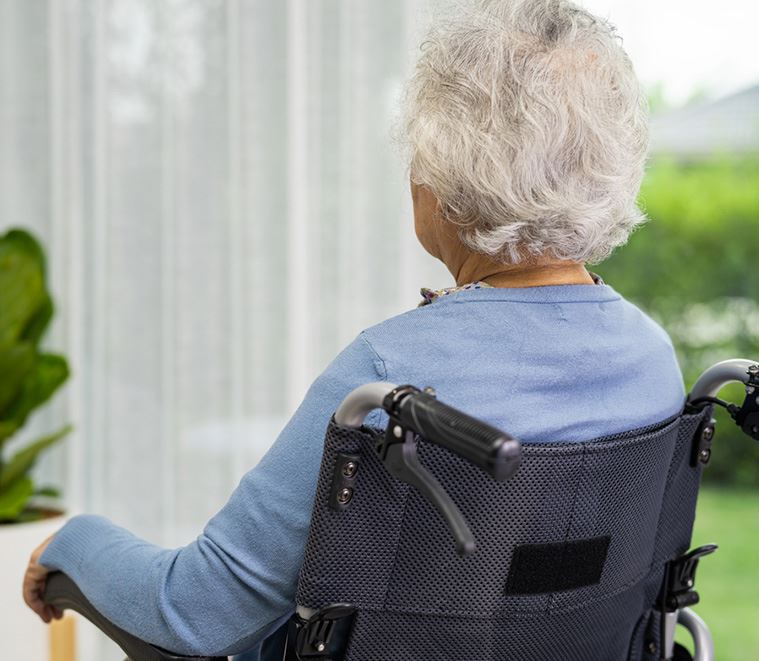
Contact Us Today!
Bryan-College Station Nursing Home Neglect Attorney
Nursing home neglect is a type of elder abuse committed against older adults in nursing homes. It involves the substandard care of a resident, or a breach of duty that harms a resident.
Nursing home neglect, the inadequate care of nursing home residents, is shockingly common. According to the National Center on Elder Abuse (NCEA), roughly 95% of nursing home residents have been neglected or have witnessed neglect. Inadequate care in nursing homes can have serious consequences, including death.
Reach out to Paradowski Law to speak with our Bryan-College Station nursing home neglect attorney in a free case evaluation at (855) 524-2976. Or send us an online message on our Contact Page.
The Impact of Nursing Home Neglect
The consequences of nursing home neglect are nothing short of devastating, often leaving deep and lasting scars on both residents and their families. Residents who experience neglect may endure a range of physical, emotional, and psychological injuries.
These can include serious conditions like:
- Bedsores,
- Infections,
- Malnutrition,
- Dehydration,
- Untreated medical issues that can rapidly worsen without proper care.
- In some cases, the neglect is so severe that it leads to debilitating injuries, permanent disabilities, or even premature death.
Beyond the physical harm, the emotional and psychological impact on the resident can be profound. Elderly individuals who are neglected often suffer from feelings of abandonment, fear, anxiety, and depression. They may become withdrawn, lose trust in caregivers, and experience a significant decline in their overall quality of life. The emotional toll is compounded by the pain of being isolated or mistreated in what should be a safe and caring environment.
For families, discovering that a loved one has been neglected can be heartbreaking. The emotional burden of seeing a parent or grandparent suffer is often accompanied by guilt, anger, and a deep sense of betrayal.
Families may also face significant financial challenges, as the costs associated with additional medical care, rehabilitation, or relocation to a safer facility can be overwhelming. In some cases, families may also need to arrange for funeral expenses if the neglect results in a tragic loss of life.
However, by holding nursing homes accountable for their negligence, families can take a stand against such injustices. Legal action not only helps secure compensation for the suffering endured but also serves as a powerful deterrent to prevent future neglect.
Pursuing justice sends a clear message that the mistreatment of vulnerable elderly individuals will not be tolerated, and it can lead to systemic changes within the facility to improve care for all residents. Ensuring that your loved one receives the justice they deserve can bring a sense of closure and peace of mind, knowing that you have taken steps to protect others from similar harm.
Protecting Your Loved Ones in Nursing Homes
When you entrust the care of your elderly loved ones to a nursing home, you expect them to receive the highest level of care and attention. Unfortunately, nursing home neglect and abuse are all too common occurrences. At Paradowski Law, we are dedicated to protecting the rights of nursing home residents and holding facilities accountable for their actions.
Our Bryan-College Station nursing home neglect attorneys have the experience and compassion to handle cases involving:
- Bedsores and pressure ulcers
- Malnutrition and dehydration
- Falls and fractures
- Medication errors
- Physical or emotional abuse
If you suspect that your loved one has been a victim of neglect or abuse in a nursing home, don't hesitate to contact us for a free consultation. We will fight tirelessly to ensure that justice is served and that your loved one receives the care and compensation they deserve.
Contact Our Law Firm Today
Jeff Paradowski is board certified in Personal Injury Trial Law by the Texas Board of Legal Specialization. Jeff is a Bryan/College Station personal injury attorney with nearly 30 years of experience in representing clients who have suffered due to nursing home neglect.
Reach out to Paradowski Law to speak with our Bryan-College Station nursing home neglect attorney in a free case evaluation at (855) 524-2976. Or send us an online message on our Contact Page.
Things to Know
What Type of Behavior Can Warrant Legal Action?
There are countless accidents, intentional acts, and failures to act that may give rise to a nursing home neglect case, either based on the conduct of an employee or based on a policy or ongoing practice at the facility. Here are a few examples:
- Failure to keep the premises reasonably safe and free of hazards (meaning dangers that the facility and its staff are aware of, and those they should be aware of through reasonable diligence). This includes everything from preventing slip and fall accidents to preventing one resident from harming another.


-
About Our Firm
-
Case Studies
-
Helpful Articles